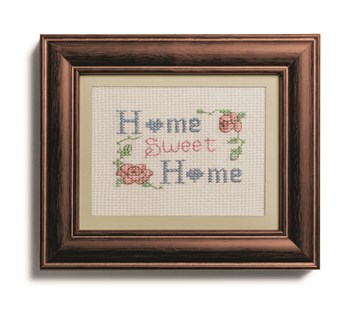
On a cold winter night, a bone-chilling wind whips through the New Hampshire condominium community, pounding against windows and seeking entrance to homes through the tiniest of openings.
More than a thousand miles away, the owners of a unit in that complex rest comfortably in their Florida retreat, memories of their day at the beach coloring their dreams.
But while they sleep, the unthinkable happens. The furnace in their New Hampshire home stops humming. The cabinet under the bathroom sink chills. And a pipe freezes, bulges, and a small crack opens. With a hiss, water begins to spray into the cabinet, and pours onto the floor.
In a season punctuated by ice storms and power outages, New Englanders have been keeping a vigilant eye on their homes. But every community has its share of “snowbirds,” folks who head south each winter. And the region’s resort communities include large contingents of owners who enjoy their condominium on weekends and during school vacations, leaving them vacant during the week and off-season.
Who’s Keeping Watch?
So who’s keeping watch while owners are away? How does a community avoid disaster – from flooded homes or potential crime – when condominiumssit vacant for days or weeks on end?
“We do a number of things,” says Todd Moyer, CMCA, AMS, manager of The Village at Stratton and other resort properties in Stratton, Vermont. “For problems with heat and pipes bursting, we use a mix of low and high tech — a lot of low-temperature alarms, and boiler checks in the winter. By checking them, we can catch problems if they’re on the verge of happening, because when it gets windy up here, the temperature drops fast.”
The personal touch is important, too, for issues beyond the potential of frozen pipes. “We do weekly house checks, just to ensure that everything is okay,” Moyer says. The Stratton properties comprise a variety of styles, from townhouses to apartment-type homes as well as commercial spaces. “When we go in for a weekly home check, we make sure thehouse heats up in all rooms,” checking for stuck zone valves in the heating system, or small leaks in the water pipes.
A pinhole in a pipe may seem insignificant, but according to State Farm Insurance, a crack as small as an eighth-inch in size can spew up to 250 gallons of water a day. And both new and old construction homes are vulnerable; both plastic polyvinyl chloride (PVC) and copper pipes can burst. When the outside temperature drops below 20 degrees, indoor water pipes that are located in outside walls, or in basements with insufficient insulation may freeze and break.
The subsequent flooding can not only ruin floors and furnishings, but its aftermath can include the growth of mold in walls. In a condominium setting, the flooding may affect not onlythe unit in which the pipe burst, but other homes below or adjacent to it.
With that in mind, it’s not surprising that resort communities rely on management to keep an eye peeled for problems. At communities like Breton Woods, in New Hampshire’s White Mountains, “we have low-temp lights,” says Wendy Chase, property manager at Great North Property Management in Portsmouth, New Hampshire. “But we also check the buildings personally, because lights do burn out. At Great North, we have a personal relationship with the owners. We go in and test every unit’s low-temp lights every year.”
The managers say it’s also importantto remind owners about the potential for disaster. “People come in for the summer, and then go away. They’re not always thinking about cold weather,” Chase says. Great North has put together a reminder checklist covering simple things like keeping sink cabinet doors open, and more extensive planning including draining water systems for extended vacancies.
“You just want people to think, if they’re going to be away for a long time, to take these steps to protect their homes,” she said.
Along with the security that comes from knowing the property management team is alert, homeowners are turning to technology to keep an eye on things while away from home. A number of systems with names like Water Alarm, Flood Stop and Freeze Alarm are on the market today. These systems will do everything from calling a cell phone to alert the owner of a problem to shutting the water off at the main valve. The Freeze Alarm even allows owners to call into the system remotely to increase or lower the temperature of their home.
Criminal Intent
The wind, of course, isn’t alone in the quest to sneak into vacant homes. Resort communities – where as many as 80 percent of the condos might be empty on any given day – are especially vulnerable, although traditional vacationperiods like the Christmas season are likely to see even year-round communities with many vacant homes. And here in New England, condominiums have been the retirement home of choice for empty-nesters who enjoy heading south as winter approaches.
With that in mind, wise neighbors are keeping an eye out for each other, and communities are taking a proactivestance to protect their property.
“Often, communities will act because something has happened,” says Howard Levinson, CPP, of Expert Security Consulting in Norton, Massachusetts. “And other times, communities will talk about security, but they look at the cost and then it dies on the vine. Unless they have deep pockets, associations don’t want to spend money, or force people into spending it.” But as an expert witness in numerous court cases, Levinson knows that being proactive is a better route to take than doing nothing.
“In one case… even the minutes of a meeting talked about security problems. The association had trimmed back, talked about the money involved, and then someone got attacked,” Levinson said. The moral of the story: associations need to react to situations they recognize. “If an area starts to change, if there are more car thefts, or nuisance break-ins, you need to respond,” he says.
Still, he says, “I’d be shocked if more than five percent of associations would proactively put in any type of technology, even if it would help them.” And if security systems are installed, it’s essential to keep them in working order, he stresses.
But without spending money on technology, Levinson suggests that community associations can take steps to minimize the potential of criminal activity. Using a system known as CrimePrevention Through Environmental Design, an association can look at common sense issues around the complex such as keeping bushes and trees trimmed back to maximize visibility, and keeping lighting adequate to identify risks and to deter them. “Lighting is essential,” Levinson says. “If someone is going to commit a criminal act, they don’t want to be seen. They’re less likely to do it in a well-lighted area.
“It’s important to have an audit procedure, to check the lights on a regular basis. You’d think it would be a standard operating procedure, but people don’t do it,” he says. And, he notes, lights should be checked at different times of the year –because, for example, trees leaf out and create shadows in the summer that aren’t there in the winter.
The value of security is increased in resort areas, where it has not been unusual to see people break into homes and live there while owners are away, henotes, “especially if there are no year-round residents in the community.”
And that’s where the good old-fashioned personal touch comes in. “Associations can hire guard services to do periodic patrols,” he says.
And associations – with their management personnel –can keep an eye out for each other. “Great North drives around every property, looks at every building, looking for anything that’s out of sorts,” Chase says.
A combination of technology and the personal touch can give homeowners peace of mind, no matter where they may be.
Pat Gale, associate editor of New England Condominium magazine, is a freelance writer in north central Massachusetts.






Leave a Comment